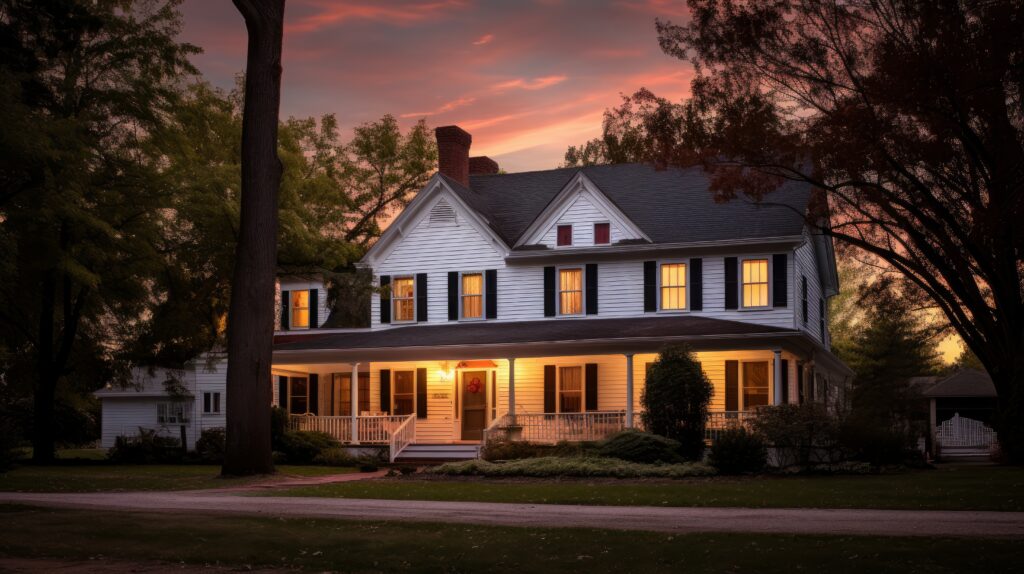Kansas City’s unpredictable weather puts commercial roofs to the test. From scorching summers and pounding thunderstorms to heavy snow and ice, building owners need roofing systems that can hold up year-round. This guide breaks down the best options available, from quick repairs to full replacements, with a focus on value, longevity, and performance in Kansas City’s unique climate.
Why Kansas City’s Climate Demands Tough Roofing
Living in Kansas City means dealing with everything from 100-degree heat to sudden hailstorms. The average yearly precipitation hovers around 40 inches, and storms with high winds, hail, and ice can strike with little warning. Freeze-thaw cycles wreak havoc on older roofs, and prolonged UV exposure can weaken materials over time. It’s not just about having a roof—it’s about having the right roof.
Top Commercial Roofing Materials for Kansas City Buildings
- TPO (Thermoplastic Olefin) Roofing
- Why It Works Here: TPO is great for reflecting UV rays and holding up to temperature swings. It also resists tearing and water intrusion thanks to heat-welded seams.
- Best Value: Offers solid durability at a reasonable price. Bonus: It’s energy efficient, which helps with cooling bills in the summer.
- EPDM (Ethylene Propylene Diene Monomer) Roofing
- Why It Works Here: This black rubber-like membrane handles freeze-thaw cycles well and lasts for decades.
- Watch Out: It doesn’t like standing water—make sure your roof has proper slope or drainage.
- Best Value: Lower upfront cost with reliable longevity.
- Modified Bitumen Roofing
- Why It Works Here: Tough against hail and great in the cold. It’s flexible, layered, and durable.
- Best Value: Particularly good for smaller or mid-sized buildings.
- Metal Roofing Systems
- Why It Works Here: Kansas City wind and hail are no match for properly installed metal panels.
- Considerations: Can be noisy during storms and may need insulation to improve energy performance.
- Best Value: Higher initial investment, but the 40+ year lifespan can’t be beat.
- PVC (Polyvinyl Chloride) Roofing
- Why It Works Here: Chemical- and fire-resistant, with strong seams and high reflectivity. A favorite for flat roofs on commercial kitchens or manufacturing sites.
- Best Value: Worth the price if your building deals with oils, chemicals, or high heat.
- Spray Polyurethane Foam (SPF) Roofing
- Why It Works Here: Creates a seamless, insulating barrier—ideal for energy savings and leak prevention.
- Best Value: More costly up front, but saves money long-term on energy and maintenance.
Repair, Restore, or Replace? Know Your Options
Every roof has a life cycle. Regular inspections (ideally twice a year, plus after storms) can help you decide whether it’s time for a repair, restoration, or full replacement.
- Roof Repairs
- Good For: Small punctures, loose flashing, or a few lifted seams.
- Real-World Example: Let’s say your warehouse in North Kansas City took a few hail hits—patching torn membrane sections might be all you need.
- Smart Move: Cost-effective and fast, but not a cure-all for old or failing systems.
- Roof Restoration
- Good For: Aging but intact roofs that still have life left in them.
- Common Fixes: Applying a silicone or acrylic coating, reinforcing seams, upgrading drainage.
- Smart Move: Saves money versus replacement, improves performance, and often qualifies for new warranties.
- Roof Replacement
- Good For: Systems at the end of their life or with widespread damage.
- Smart Move: Though more expensive upfront, you get a clean slate—new insulation, improved energy efficiency, and full code compliance.
Don’t Forget Code Compliance and Energy Rules
Kansas City follows the International Building Code (IBC) and International Energy Conservation Code (IECC). These set standards for insulation (R-values), drainage, wind resistance, and more. Your roof system needs to meet these codes to pass inspection—and to perform well under stress.
Choosing energy-efficient systems can also pay off. Cool roofs, reflective surfaces, and added insulation can reduce HVAC load. In some cases, rebates or tax incentives are available for these upgrades.
Choosing the Right Roofer in Kansas City
Even the best materials will fail if installation isn’t up to par. When vetting contractors:
- Make sure they’re licensed and insured in Missouri or Kansas.
- Ask if they’re certified by material manufacturers.
- Review similar past projects in the KC area.
- Verify knowledge of local codes and storm-specific challenges.
A contractor who’s worked on grocery stores, warehouses, and retail centers in the Kansas City metro will understand what your building needs.
Final Thoughts: Build for the Climate, Not Just the Budget
Kansas City’s weather is no joke—and neither is commercial roof failure. Whether you’re patching up storm damage, planning a roof restoration, or starting from scratch, choose systems and strategies that match your climate, not just your budget.
The best approach combines local expertise, resilient materials, and smart maintenance. That’s how you get a roof that weathers storms, cuts energy bills, and keeps your property protected for years to come.

